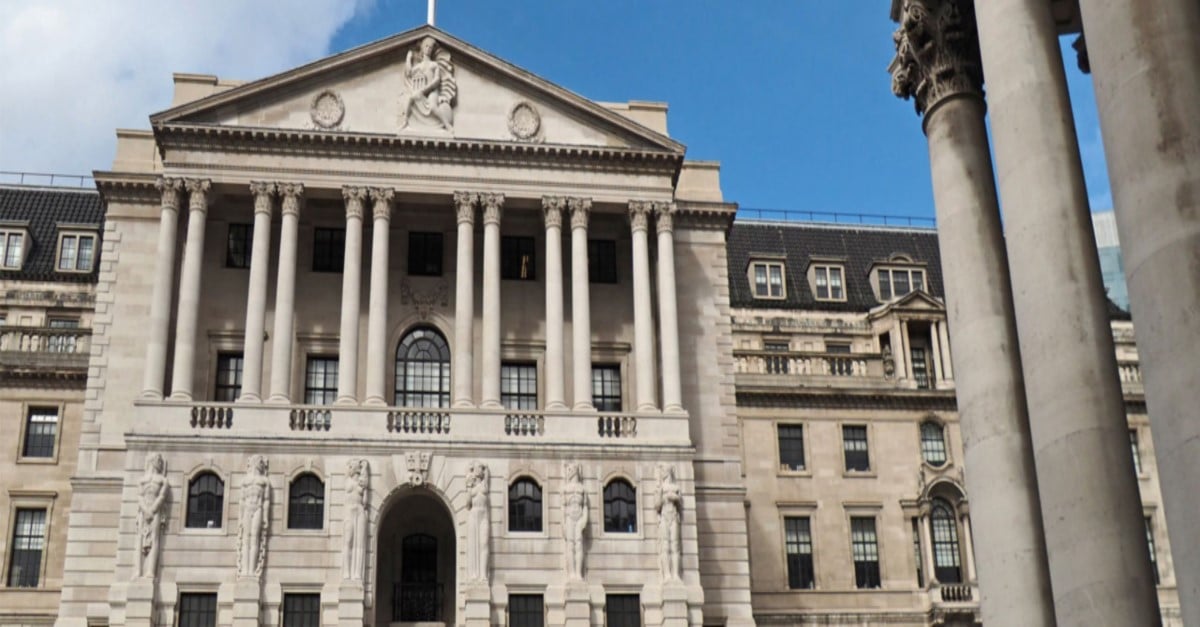While a rate of 0.5% is low by historic standards, this increase – and the prospect of further hikes later in the year – is likely to be of concern to both households and businesses.
Why has the Bank chosen to act?
As the UK has emerged from the Covid-19 lockdown imposed at the start of 2021, prices have been increasing sharply. Inflation as measured by the Consumer Price Index (CPI) was just 0.7% in February 2021, but it had hit 5.4% by December – the highest level since 1992.
Inflation has risen as economic activity has picked up, driven higher by global supply chain shortages as well as soaring energy costs and, more recently, higher wages. The BoE uses interest rates as one of its main weapons against inflation. In theory, higher rates encourage people and business to save rather than spend or borrow – and this is supposed to have a dampening effect on price increases. The flipside, of course, is that it can prompt a recession.
The BoE’s long-term inflation target is 2%, and although the CPI has been above this level since last May, members of the MPC initially expected higher inflation to be fairly transitory. That has not proved to be the case, and further increases in the CPI are expected in 2022. The questions many analysts are asking are: has the BoE left it too late to act; or, conversely, should it have raised rates at all considering soaring energy costs are already leading to increasing pressures on household finances?
How does the current rate compare with previous levels?
In historic terms, a base rate of 0.5% is very low. In the first decade of this century, rates had hovered around the 5% mark until the credit crunch hit in late 2007. In previous decades they had often been considerably higher, reaching almost 15% in 1989, for example.
After the financial crisis in 2008, however, the BoE cut the rate to 0.5%, where it remained until August 2016. At this point it was reduced further to 0.25% in the wake of the Brexit referendum. The economic shock created by the pandemic in March 2020 saw rates fall further to 0.1%, an all-time low.
While today’s increase to 0.5% does not look dramatic in a long-term context, it is an indication that the MPC is now prepared to act decisively – indeed many traders believe rates will hit 1.5% before the end of 20222.
What will this mean for consumer bills?
The most immediate impact of higher rates will be on variable rate mortgages, which are typically linked to the base rate. Borrowers who are on their lender’s standard variable rate or who have a tracker mortgage will probably see bills rise next month, for example.
The cost of servicing a fixed-rate mortgage will not increase, but if your deal is due to come to an end in the next few months, it may be worth reviewing – especially if further base rate hikes are in the pipeline.
Rates on credit cards and overdrafts tend not to be explicitly linked to the base rate, although they could rise in the next few months. The cost of repayments on personal loans is usually fixed in advance, so these should be unaffected by today’s news.
What other pressures are households facing?
The latest base rate increase was revealed just moments after Chancellor of the Exchequer, Rishi Sunak, announced plans to help households deal with a growing cost of living crisis, fuelled primarily by soaring energy bills.
The cost of gas and electricity has increased dramatically since last summer and the government has announced that the new energy price cap will be more than 50% higher than the previous limit, coming in at an average £1,971 per household for an average annual dual fuel bill3.
The elevated inflation rate means the cost of other essentials such as food and clothing is rising from month to month; meanwhile, Sunak is pressing ahead with an increase in National Insurance rates due to come into effect in April.
Will savings rates increase?
Banks are typically slow to pass on any increases in the base rate in the form of higher returns on savings rates. It is possible the BoE’s decision could result in some providers offering better deals but, as ever, the best advice is to review your account on a regular basis and switch when necessary. If in any doubt, as always, speak to a qualified independent financial adviser.
Investors should consult with their own professional advisors for advice on any investment, legal, tax, or accounting issues relating to an investment with Columbia Threadneedle Investments.





